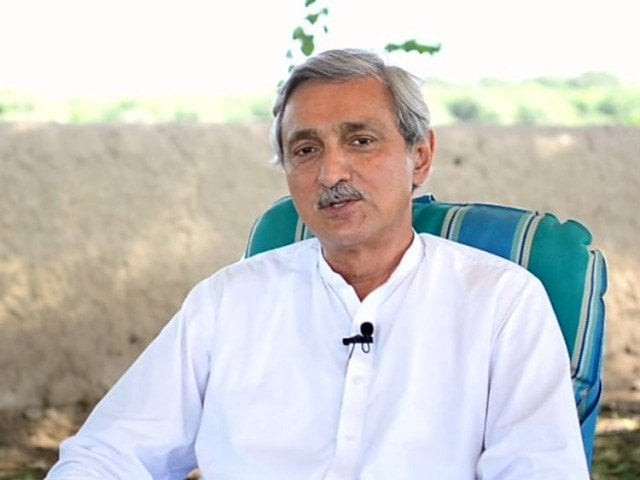Lift entire crop or Sharif’s mills will be allowed crushing: SC tells Jahangir Tareen
Top court hears petitions against LHC’s declaring relocation of sugar mills in Punjab illegal

PHOTO: FILE
The three-judge bench summoned Tareen to inform the court about his response to the proposal to lift the whole sugarcane crop at Rs180 per mound.
The bench, headed by Chief Justice Mian Saqib Nisar, on Wednesday took up the petitions against the Lahore High Court’s September 11 decision wherein it is held that relocation of sugar mills in Punjab is illegal. The high court also directed the Sharif family to dismantle its sugar mills within three months.
Disqualification 2.0: Jahangir Tareen's political journey
During the hearing, the chief justice made it clear that the court would not allow loss of farmers at any cost, adding that he would conduct in-chamber hearing daily to monitor the ongoing crushing season and receipt of their payments by mills.
“Why the farmers should suffer!” said the chief justice.
Aitzaz Ahsan, the JWD counsel, contended that the Sharif family’s sugar mills were involved in committing the crime.
He told the court that sugarcane prices had crashed from Rs180 to Rs50, but the court reiterated that it would not allow the farmers to suffer.
Imran says will keep Tareen ‘right next’ to him despite disqualification
The court also wondered why appeals were being issued in newspapers, highlighting the problems being faced by sugarcane growers when the mills had already been shut for almost a year.
Earlier, the court accepted for hearing a petition instituted by the Pakistan Kissan Ittehad (PKI) through Asma Jahangir, pleading that the high court order of striking down Punjab’s relocation policy of Dec 4, 2015 had indirectly allowed the few existing sugar mills, located in southern Punjab, the benefit of monopoly and unfair trade practices.
The high court had also failed to consider the fact that the crushing season must immediately begin by the end of November every year. Thus, the high court order had deprived the sugarcane growers of the revenue and caused insecurity to the economic sector.
The impugned high court order was also detrimental to the economics of sugarcane growth, crushing and processing and was consequently contrary to the national interest.
The judgment did not consider that farmers were able to cultivate a cash crop which enabled them to create a food basket in rural areas and contribute greatly towards the economy of Pakistan and the rural areas, the petition states.
The high court had also strangulated the principle of competition within an industry, it submits, adding that the present growers no longer have sugar mills to purchase their crops in close proximity and will be unable to gain the same profit that was afforded to other cane growers in the area.
“In case the farmers are forced into selling their crop at reduced rates to the existing sugar mills in southern Punjab they will suffer from irreparable loss and injury,” says the petition.



1724319076-0/Untitled-design-(5)1724319076-0-208x130.webp)















COMMENTS
Comments are moderated and generally will be posted if they are on-topic and not abusive.
For more information, please see our Comments FAQ